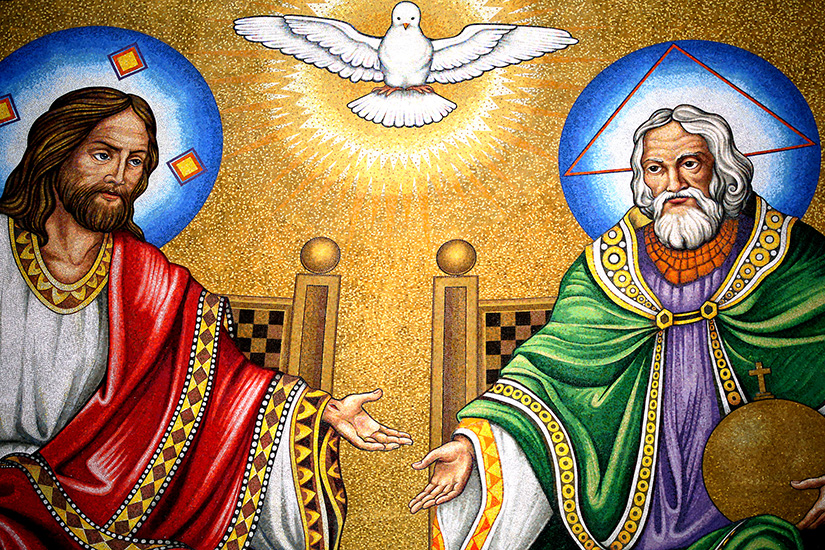Alexander Pruss writes:
I can’t get myself to believe in a God who is an old bearded guy in the sky. That would be just a fairy tale.
What’s wrong with such a concept of God? It’s the beard! Seriously, the problem is that a guy who has a beard has parts and changing. Whether the parts are material or immaterial does not seem of very deep metaphysical significance. But having parts or changing, either one of these is an absurd anthropomorphism.
And hence I can’t get myself to believe in a God who changes or has parts.
This probably takes the cake for the worst argument for classical theism I’ve come across.[Fn] (For a critical assessment of most arguments for classical theism — including many leveled by Pruss himself — see these two videos [Part 1 and Part 2] as well as the document in the descriptions of these videos.) For there are lots of relevant dissimilarities between the bearded sky man and a non-CT God. (Let’s suppose our non-CT model affirms timelessness but says that God’s omnipotence, moral goodness, timelessness, necessity, and whatnot are numerically distinct.)
First, there is a kind of essential, metaphysically necessary, and intelligible unity to God’s parts that is absent from the bearded sky man. It’s no coincidence, for instance, that omniscience, omnipotence, etc. are co-instantiated. By contrast, a bearded sky man involves a whole host of seemingly arbitrary limitations and coincidences: why is the beard 7.8 inches long and not 7.81 or 7.79? Why isn’t the man cleanly shaven? And so on. In the case of God, God’s unlimited perfection can provide the resources for seeing why each of God’s numerically distinct attributes are all compresent, without any arbitrariness or possibility of being separated from one another or limitation. By contrast, the bearded sky man is limited, has lots of arbitrariness, has parts that are possibly separated, and so on. Not to mention that a bearded sky man would plausibly be contingent, whereas the non-CT God is necessarily existent. I don’t see why all of these points (and more) don’t count as having “deep metaphysical significance”. Indeed, a denial that they have such significance seems obviously wrong.
I can also imagine, say, Plotinus saying that it is Pruss’ view of ultimate reality that is patently absurd anthropomorphism. For Pruss, ultimate reality is personal. He’s an intentional agent with free will and acts for reasons (if only analogously so). He desires relationships with creatures. He loves creatures. He even has emotions [divine impassibility, importantly, does not deny that God has an emotional life; it simply says God’s emotional life is one of undisturbable blessedness/bliss/happiness]. And if that isn’t absurd anthropomorphism, what is? At the very least, all of these affirmations are obviously far more ‘anthropomorphizing’ than merely attributing change and non-simplicity to ultimate reality.
A more plausible (though still deeply implausible) argument might go something like:
“Pruss’ view is not one on which the foundational reality is truly ultimate. His view is fraught with absurd anthropomorphisms. He genuinely says ultimate reality is personal, has free will, has an emotional life, intentionally acts for reasons, is mental, and so on. But this is just projection onto ultimate reality. I’m reminded of Xenophanes’ scathing critique of Greek anthropomorphism: “[i]f horses had hands, or oxen or lions, or if they could draw with their hands and produce works as men do, then horses would draw figures of gods like horses, and oxen like oxen, and each would render the bodies to be of the same frame that each of them have” (B15). And in a similar vein, he notes that “Ethiopians say that their gods are snub-nosed and dark,” whereas Thracians say “that theirs are grey-eyed and red-haired” (B16). Here Xenophanes is noting correlations between the features of particular groups of people (on the one hand) and the features such groups associate with the ultimate reality (on the other). Just as Ethiopians are themselves dark-skinned, their ultimate realities (gods) are similarly dark-skinned; and just as Thracians are themselves red-haired, their ultimate realities (gods) are similarly red-haired. And just as Pruss has free will, intentions, acts for reasons, loves, desires, and has emotions, so too does Pruss’ “ultimate” reality have these features. But this is like supposing that ultimate reality is dark-skinned or has red hair. No. Ultimate reality is a radically transcendent One — a mindless, impersonal, absolutely simple principle from which *all* multiplicity and differentiation — including a multiplicity of trinitarian persons — derives. Pruss’ God is a dependent being. Pruss’ God has internal multiplicity and differentiation among persons. This internal multiplicity requires an extrinsic source or principle accounting for the unity of the multiplicity. This extrinsic source is the absolutely simple One, which transcends all multiplicity, differentiation, and qualification. Anything apart from the One requires a cause for the unity of its multiplicity, distinction, differentiation, and qualification. Thus, a differentiation or multiplicity of distinct divine persons demands an extrinsic cause. Multiplicity is an absurd anthropomorphism. Cast such anthropomorphism to the flames, for it contains nothing but sophistry and illusion. Either ultimate reality is the just-articulated impersonal, mindless, absolutely simple One, or else atheistic naturalism is true. There is no middle ground.”
Author: Joe
Email: majestyofreason@gmail.com
[Fn] It’s not exactly clear whether Pruss intends for his blog post to be an argument. So I want to emphasize that I’m not much concerned here with whether Pruss himself is proffering an argument. Whatever Pruss did, and whatever his own intentions were, he seems to be offering some kind of reasons, or at least evaluable claims. And these evaluable claims can be naturally strung together into an argument against non-classical models of God based on their (purported) objectionable ‘absurd anthropomorphism’. (E.g. Pruss claims that there is something wrong with a model of God and then goes on to pinpoint that in virtue of which it is wrong, and then alleges that non-classical models of God share this objectionable feature. But surely this claim can be critically evaluated by, say, pinpointing relevant dissimilarities between the example and the non-classical models of God that render the two categorically different.) And so my post is here to evaluate such claims.





/GettyImages-1096101642-5c7db9ec46e0fb0001edc8e3.jpg)
